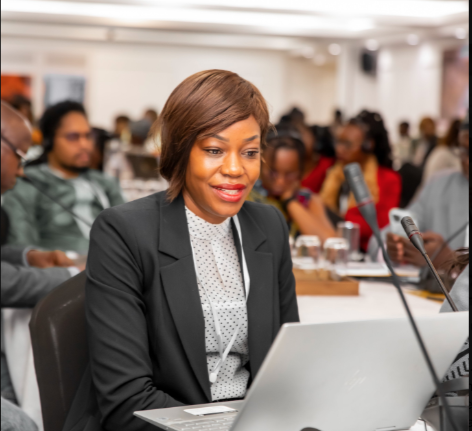
 Lydia Madyirapanzi, Executive Director of FAWE Zimbabwe, addresses a meeting in Nairobi convened to advance gender equality through education/HANDOUT
Lydia Madyirapanzi, Executive Director of FAWE Zimbabwe, addresses a meeting in Nairobi convened to advance gender equality through education/HANDOUTMore than 50 leaders, policymakers, education experts, and activists from across Africa have convened in Nairobi for a high-level workshop aimed at accelerating gender equality in and through education.
The two-day gathering, organised by the Feminist Network for Gender Transformative Education (FEMNET4GTE), comes at a critical moment as the African Union prepares to mark 2025 as the "Year of Justice and Reparations."
Framed around the AU’s theme “Building a united front to advance the cause of justice and payment of reparations to Africans”, the meeting positions education as a vital tool for reparation, dignity restoration, and social transformation.
The workshop draws participants from key organisations, including the Forum for African Women Educationalists (FAWE), Plan International, Oxfam, Usawa Agenda, and the Africa Network Campaign on Education for All.
It also builds on outcomes from major continental platforms such as the Beijing+30 review, the Continental Education Strategy for Africa (CESA) meetings, and the Gender Is My Agenda Campaign (GIMAC).
Lydia Madyirapanzi, Executive Director of FAWE Zimbabwe, emphasised the transformative power of education as a form of reparative justice.
“Education is a tool for reparative justice. Its content, pedagogy, and environment must challenge gender norms and drive transformation,” Madyirapanzi said. “This means valuing intergenerational leadership and ensuring young feminist activists are co-leaders at the decision-making table. We must not only advocate for sustainable investments but also interrogate how we use our resources in Africa, for Africa.”
FEMNET4GTE, the convening organisation, is a growing intergenerational movement of over 210 institutions—including governments, researchers, and civil society groups—working to dismantle systemic barriers to gender equality in education.
Alinafe Malonje, Community Coordinator for FEMNET4GTE, highlighted the urgency of addressing stark realities facing children across the continent:
“Leaders can no longer ignore the facts—122 million girls are out of school, one in five faces early or forced marriage, 138 million children are in child labour, and every four minutes, a child is lost to violence,” she said.
“Too many boys are growing up believing they are superior to girls, and tragically, many girls believe it too. But children are not born this way—division is taught.”
The workshop is focused on strengthening regional advocacy, fostering collaboration, and influencing policies that prioritise gender justice in education systems.













